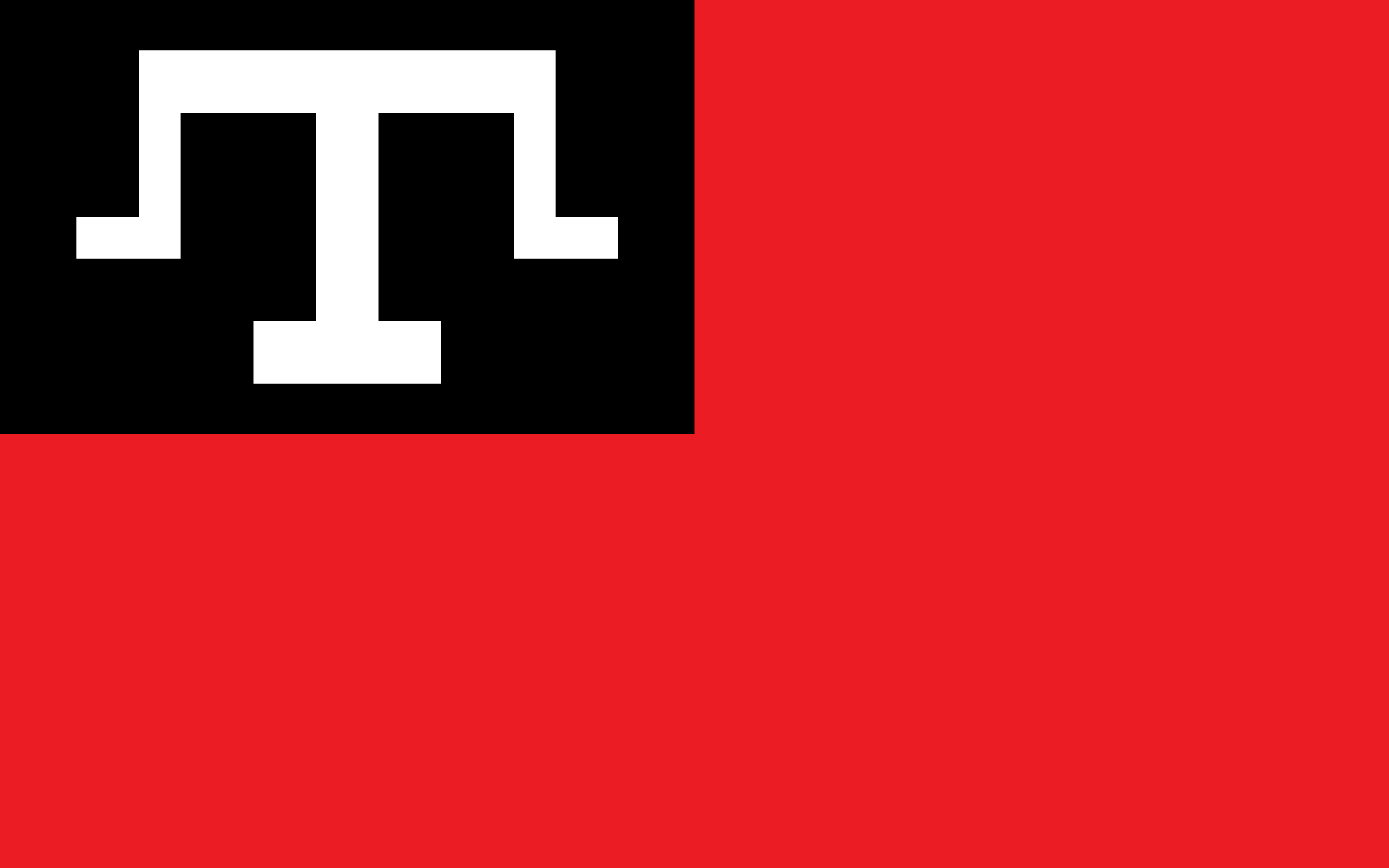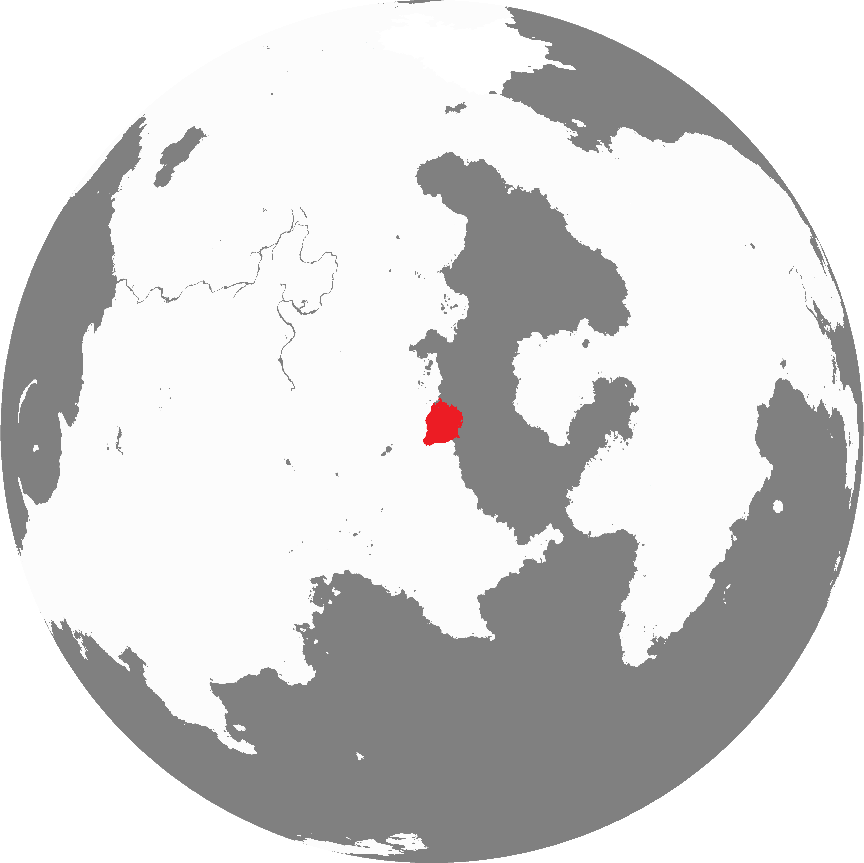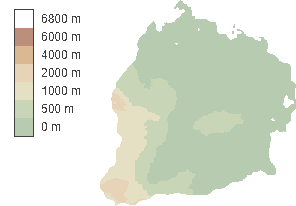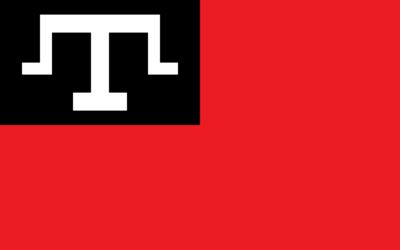Sahr: Difference between revisions
Slavic blin (talk | contribs) mNo edit summary |
Slavic blin (talk | contribs) No edit summary |
||
| Line 111: | Line 111: | ||
ria is sahr |
ria is sahr |
||
- matt1 |
- matt1 |
||
| + | [[Category:Nations]] |
||
Revision as of 01:57, 3 November 2022
|
The kingdom of Sahrland
Sahrlandiya
|
|||||
|---|---|---|---|---|---|
 |
|||||
| Motto | "Slavsya, Sahr!" (Glory to sahr!) | ||||
| Common Name | Sahrland | ||||
| Anthem | "Slavsya, Sahr" | ||||
 |
|||||
| Demonym | Sahren | ||||
| Official languages | Egercian, Tekkian | ||||
| Currency | {{{currency}}} | ||||
| Politics | |||||
| Capital | {{{capital}}} | ||||
| Government | Constitutional monarchy | ||||
| Foundation | 2116 | ||||
| Preceded by | n/a | ||||
| Followed by | n/a | ||||
| Demography | |||||
| Ethnicities | Egercian | ||||
| Population | 10'000'000 | ||||
| Area | 69'420 km² km² | ||||
Sahrland, otherwise known as the Kingdom of Sahrland (Egercian: Ríocht na Sahrlandiya), is a hilly state north of tekkia. Sahrland has an extensive coastline connecting to the Sea of Kolus. To the south lies Phoenia, and the large western steppe leads to Sceania. It's two capitols are khosa and dugthail.
Etymology
The name sahrland comes from the Burric Chevspendi people which would migrate into the area and alter the makeup of egercia happening sometime before 2116. They would name the land they inhabited "sahrlands" and integrate into the peoples already there. It resulted in "Sahrland" representing the state and "Egercia" representing the people and the land. In modern times the two terms have come to be almost interchangeable.
Geography
Climate
The northern region of sahrland recieves significantly more rainfall than the deserts to the south and west of sahrland. The newer territories of Rokfor and Baile recieve less than the north but are still cooler than the deserts in tekkia. All three provinces provide important farmland to the nations which occupy and surround them.
Biodiversity
###
Urban Areas
Khosa was historically the capital of the country since it's creation in spite that Dugthail was often larger or equal in size. The city remained the location of the Parliamant and became the location of the Presidency while the location of the monarchy has remained in Dugthail since the 2139 coup. Other noteworthy areas are Klensagrad, named after the peninsula it inhabits, and Slovale, which is also coastal despite being significantly farther north. Sus is the farthest from the coast and the smallest, and is also the farthest south of all the cities in Sahrland proper. Within the two recently gained provinces of Baile and Kravsmad, there are 3 more significant cities, named Baile, Heidli and Rokfor respectively. Urban areas in the northern region are less populated and prosperous than the southern regions as the south has been untouched from the civil war and internal population migrations caused by the hysteria of 2160.
Politics
Government
Sahrland has two leaders, the king which is a hereditary title and the president which is an elected title. Additionally the parliament exists to ratify new laws. The king is not powerless like many constitutional monarchs, with both the president and king having executive power. Uniquely the presidential and parliamentary branches are set in Khosa, while the monarchy resides in Dugthail.
Subdivisions
There are four regions in Sahrland, Dugthail/Sahrland proper, Rokfor/Kravsmad, Baile, and Sahren Chadastok. The only significant changes in autonomy are to Sahren Chadastok, which is able to operate almost as it's own entity to the nations surrounding it. Power is largely concentrated in Dugthail/Sahrland proper.
Foreign Relations
Sahrland sought alliances with tekkia as early as the conquest of Kravsmad. It effectively ignores all other nations bordering it. The country has always operated with little regard to international relations because of Tekkian interests in Sahrland and international isolation. Within the Sahrland-Bastia commonwealth foreign relations are a point of division, Sahrland prefers better relations with Aonta and Bastia would prefer better relations with Zokesia.
Demographics
Languages
Official languages are Egercian and Tekkian, which are also the majority. Chevspendi (also called old sahren) is rarely used at all because Egercian was used a way to simultanously unify the country linguistically. The sahren Chadastok area is an exception, with a sizeable minority speaking orinian.
Education
###
Religion
###
Age
###
Military
Sahren Republican Air-corp
Sahren air doctrine revolves entirely around battlefield support and disruption of enemy air support. The airforce is integrated fully into the army as the Sahren Republican Air-corp.
Sahren Republican Guard
After the civil war the Sahren Republican Guard was formally created to make up for the dismissal of the masses of militia. It is stressed that the army is to be put under control over the state and de-politicized. The SRG since has become a very small professional force intent only on policing the borders of Sahrland. Since it's founding, the SRG has only fought in border conflicts with various groups like the South Sahrland Revolutionaries and Free Army of Hartfordia. Many have come to question the gutted force's effectiveness in a conventional war.
The Sahren Republican Navy was created in theory in the beginning of the civil war. It held no vessels until the destruction of junta forces in entirety, when the SN khosa and SN Medraria were seized. The khosa was unused after sahrland's defeat to Ophir which started the civil war in the first place, and Medraria barely finished production in time for the beginning of the civil war. Only two more ships were ever produced, both of phoenian origins, the Deir class "Agile" and "Able". The Sahren Republican Navy has seen no combat since it's founding and has little in the name of naval theory or experience.
Economy
Taxation
###
Transport
###
Energy and Infrastructure
###
Trade
###
Science
###
History
Foundation of the sahren state(2106-2116)
The principality of sahrland was created after a great migration of people from inner kolus, the regions of the Vagani, Carsadonian, Saguaro, and Tata are likely origins of the Chevspendi nomadic tribe, who would eventually migrate into egercia. Their state was founded around the time of the collapse of tekkia. The state was an absolute monarchy under Miden lavro the first. The stability of the state would be a large hinderance, due to the tensions between those adopting egercian language and culture and those who cling onto their burric history. the unrest in tekkia at the time garunteed no threat of annexation. during this time the monarchy would gain absolute power over the state, earning Miden lavro the nickname "iron ruler". Sahrland would participate in wars with two other states in an effort to conquer and unite egercia, called "Grand duchy of Kravsmad" and the "Kingdom of Medraria". Sahrland nearly won against Kravsmad until Medraria joined the wa. Quickly the sahren army was beaten and routed, losing khosa and relocating the capital to slovale. it seemed like sahrland would be defeated until phoenia annexed chosaint and marched northward into south egercia. A ravaged sahrland quickly took the opportunity to push back. The combined Kravsmad-Medraria forces could not stand up to both sides. Both states were beaten back, with sahrland reclaiming all of the land it lost. Although plans did exist to annex sahrland into the union state, both countries were suffering from the affects of war and were unwilling to commit to another, and there was little desire in the Tekkian leadership to take the Dugthail region.
Journey of the first principality(2116-2139)
Prince Miden Lavro would eventually pass, and his son, named in his honour, would take the throne. Prince Miden Lavro the second would instead be known as a great reformer in complete contrast to the absolutist style of ruling his father had used. Under his leadership the popularity of the government rose due to a growing economy and increased international relations. though his reign was cut short when he died of a stroke, leaving his teenage son kirbo lavro to rule. In the instability following, a certain "Nedfry Svoboda" and his "Movement for sahren democracy" began to amass power, to the point where kirbo lavro was forced into turning the country into a constitutional monarchy. this continued only for a short time. The parliament was shut down eventually in an attempt to return to absolute monarchy. This action proved to all political factions the government was not to be trusted. Before any faction could take advantage of the unrest, they began to riot in the street against eachother to ensure their side won. The government lost control of much of the country in the crisis and the military high command, under chief of army Alekzander Kholsahr would launch a coup to take control of state affairs until kirbo lavro was deemed fit to rule again. the resulting junta would ironically only delay what they were fighting against.
Junta(2139-2141)
Much of the recent history of sahrland and the makeup of the current sahren state was due to the actions taken by the junta. The government functioned in an authoritarian capitalist regime, with the high command acting as a sort of pairlament of their own. The junta would cause the formation of the south sahrland revolutionaries, a group of radical nationalists acting as a terror group in the south egercia provinces in phoenia which would only be crushed in late 2147. Political parties would either seek exile until the time was right for their return, or stay underground, also waiting for the time to strike. The "Movement for sahren democracy" and newly formed social democrat "Worker's party" would flee into Phoenia, particularly south Egercia and merge to form the republican party. The radical socialist sahren labour party, however would flee into ophir and get involved in the current civil war there, supporting the ganap rebellion until severe persecution by the ophirian republic would force them out. The junta would also support phoenia diplomatically in the partition of grestin but never actually fought. Soon after the junta would join coalition forces in the burr war. Zokesia would also have a civil war with stahlsieg units defecting to surnay and taking control of several federal republics. Sahren ground forces would move to Schrschnell with units from nuvastia to help defeat the stahlsieg there, but they were defeated before the taskforce could arrive. Nuvan and Sahren soldiers both commited to the destruction of all media containing "Schrschnell", because they despised the name which was "Unpronouncable" to them. Sahren and Nuvan leadership would only step in when zokesia threatened military action if this did not cease.
Wartime unrest(2141-2143)
During this war, while the military was in zokesia, a revolution had been being plotted by the radical socialist labour party, with their anarchist allies. They overran the garrisons at the capital city of khosa as well as slovale, but would not be able to take sus, dugthail, or klensagrad. these chaotic revolutions would be called "The first pozhar revolts". Initially it seemed like a valued ally in the struggle against the burr federation was collapsing, the socialists nearly linked up, but their advance would eventually be stopped. operation kerosene pushed the labour party back proving an excellent experiment in new military doctrines. the first siege of slovale would see a large amount of the city destroyed. The Labour party was destroyed and forced into hiding soon after. The nuvastian state similarly fell to many revolutions, and to keep a balance of power in the region the coalition allies decided another power should step in until Nuvastia could be rebuilt and set free. Due to Sahrland's distance and power, they were chosen as an ideal candidate. The treaty of Phoezi declared the territory sahren. Unrest in the Wardia province was not quelled, and Zokesia demanded to take the province as their own, which the local politicians strangely let happen. It was later found that they had been bribed substantially. Additionally the treaty of Chadastok was signed with orion, which led to the purchase of Sahren Chadastok.
War of the straits of Aonta(2143-2144)
Following ophirian aggression to celepran and south comer, the junta publically demanded no action occur to these nations to preserve balance in the region. unsurprisingly, ophir would ignore this demand, and war would break out. on one side, south comer and sahrland, on the other stood ophir. The sahren people however were tired of junta rule, especially the inherent warmongering they had been doing since the state's creation. The klensagrad harbour strikes resulted in many losing their lives in a violent crackdown. The war would not end in a junta victory at all, the pride of the fleet SN-khosa was destroyed by ophirian aircraft as well as the entire airforce and phoenian volunteer group. the phoenian federal union state pressured both sides into peace, the initial talks were very harsh, with ophir demanding military bases on both sahrland and phoenia. Both staunchly rejected, and the war dragged on until ophir finally settled on a white peace. however it did not matter, the treaty of cath would indirectly result in the collapse of the Sahren state.
Sahren Civil War (2144-2146)
The failure to win the war and violent crackdowns had proved to everyone, every group, every man woman and child, that the sahren military junta was rotten to the core and had to be torn down to be rebuilt. following the treaty of cath, violence and protests would continue and grow in magnitude, the military would see more and more defections, more and more supplies were being hoarded. Across the country groups were murdering important officials and seizing state property. the movement for sahren democracy and worker's party merged to form the Republican party. kirbo lavro himself began secretly plotting with his monarchist allies to overthrow the junta. the National salvation party and Labour party began to also prepare. in 2144 The Republicans struck first, smuggling weapons and material into the junta and taking the backwater of sus, the labour party would take control of klensagrad and another pocket in the north attempted to march to slovale. the National salvation party also rose up in the north. several parties aligned to the sahren factions would also rise up in sahren nuvastia. the various factions would all advance quickly into the junta, by the time the republicans were at the outskirts of dugthail kirbo lavro had gathered up monarchist supporters and taken the city themselves, saving his reputation. Kirbo lavro declared his support of the Republicans as soon as they entered the city. The junta would collapse shortly after the Labour party siezed control of slovale. Chief of army alekzander kholsahr was found dead in khosa, and evidence pointed to him slipping on a banana peal and breaking his neck being the cause of death. The sahren nuvastia regime wouldn't collapse immediately but with the head cut off the snake, it clearly could not survive. The National salvation party would begin the second siege of slovale, and both the labour party and national salvation party would begin pulling their forces out of sahren nuvastia, effectively leaving the bastian front won by the Republicans, who would be quick to pull forces out of after the victory. The National salvation party would begin an offensive to take khosa before the republican troops arrived, but failed to make much progress. At this point most of the world was backing the republican faction, including the Phoenian federal union state. the Aanarcho syndicalist commune of sahrland" or more popularly known as the "Klensagrad commune" would split off of the labour party and attempt to push the Republicans out of the Klensagrad peninsula. only a few weeks afterward, a Zokesian taskforce near the area sighted the red and black banner over klensagrad, and in horror the Admiral ordered to bombard the city. During the bombardment Ancom naval batteries heavily damaged one ship and lightly damaged others. The zokesi bombardment resulted in most of the Ancom naval batteries to be destroyed, and damage to the industrial ability to make war. So far the republican faction had absorbed and made peace with as many smaller groups as possible, and had by extension outnumbered the other factions in support and strength, at the cost of the original movement's goals. The national salvation party were outflanked by the Labour party, beginning the third siege of Slovale. Soon the republicans won in klensagrad against the Ancoms. The freed up troops created a breakthrough which completely disrupted any organized resistance to the Republican faction.
Aftermath
The various civil war leaders had varying success after the war. Gerbin ostalost (NSP) was shot dead by a Republican militiaman trying to escape into the Vagani region. Anastasia otsahrlandiagorodtsev (LP) attempted to flee to Arcadia, but the plane she was on was shot down by an elite chadastok squadron led by ace pilot Dimitri "del" chevarra. Kirbo lavro was granted the title of king of sahrland to appease lavro loyalists. Republican chief of army Nedfry svoboda was elected as the first president of the country. Haidan Potop (Chadastok) was kept as the General of the Chadastok People's Militia after giving back control of the city to the Republicans. 80% of Slovale was destroyed, 13% of Khosa was destroyed, 32% of Klensagrad was destroyed, and 2 and 3% of Sus and Dugthail were destroyed respectively. The fighting bled 7% of the sahren population and 4% of the bastian population away.
Post-war golden age (2146-2160)
After the civil war, Nedfry Svoboda declared the Sahrland-Bastia commonwealth, Containing the territories of Bastia, Upper bastia, Sahrland, and Chadastok. His reign oversaw a massive overhaul of all states he reigned over. The masses of conscripts provided a massive labour pool, which was used in the process of rebuilding the nation. Investment from all over kerbin (albeit mostly from tekkia) created a time of prosperity. At this time the nation was under a one party state, which would have to change, it was mandated after 2150 the first elections would begin and the Republican coalition government would dissolve. Svoboda also declared the South Sahrland Revolutionaries a terrorist organization and begun counter terror operations in 2146. The sahren republican guard claimed victory the next year but the SSR would not be pacified until 2154. in early 2148 the treaty of Phoezi expired, which mandated a sahren removal from the Nuvastian area. For most of the year it was renegotiated and the bastia region was allowed to be independent, while upper bastia was to remain in the commonwealth. This outcome could be considered dissatisfactory for all. Soon, as sahren officials predicted, Nuvastia joined Zokesia. In 2150 the first elections occurred, with a dissolved republican party. The worker's party (the second largest part within the republican alliance) Supported civil war hero Karlo Frakchiya. His first act as president involved the recreation of Aonta by signing into a union with phoenia. As a condition the egercian provinces of Baile and Rokfor were transferred into Sahrland. Frakchiya's reign continued to foster the economic growth and peace in the previous years, with a more hardline approach. He oversaw the Chadastok-Hartfordia crisis, where the Chadastok People's Militia joined with hartford seperatists and began a guerilla campaign against the imperial union. By all accounts they were heavily beaten back until the Orion empire collapsed and granted hartfordia independence. Sahren republican guard had landed in the city by this time and took control. Perpetrators of the revolt were arrested for treason and Chadastok was stripped of it's right to an independent militia. On frakchiya's second term, he had narrowly won the election against both Daria Adaman and Gerbin Pridurok only because the liberal and conservative parties could not negotiate an alliance with another. The largest post civil war protest sahrland saw eventually forced Frakchiya to resign in 2156 and Adaman won the elections afterward. The Post war golen age ended in the Hysteria of 2160, which brought on complete economic collapse.
Notable Events
About The Flag
The flag originates from a Chevspendi tribal flag. The symbol in the canton comes from the house of Lavro, the only dynasty to ever rule sahrland. The red represents fraternity, livelehood, and blood spent to maintain it.
ria is sahr - matt1

